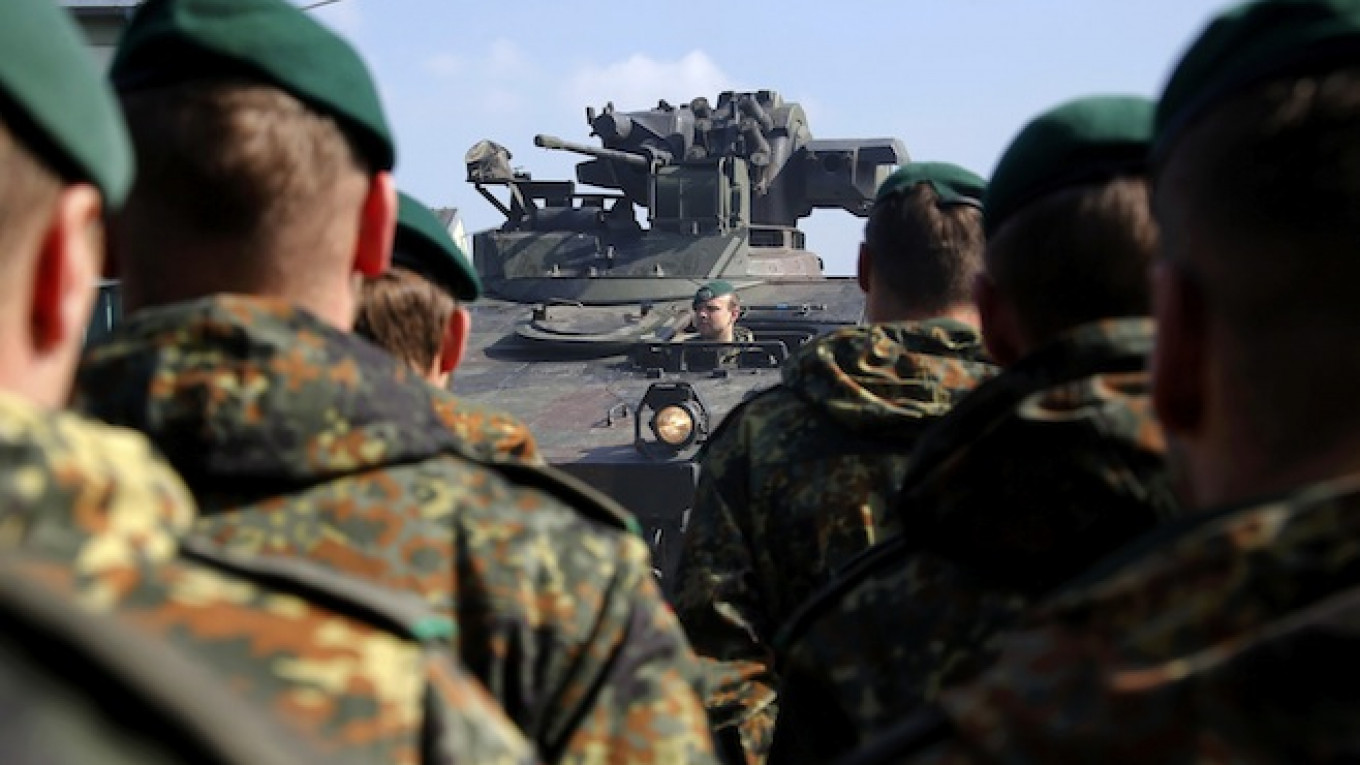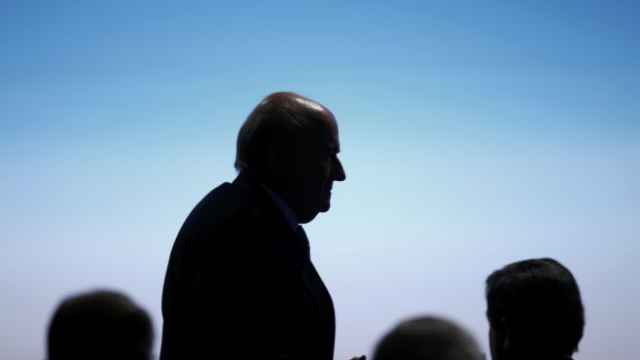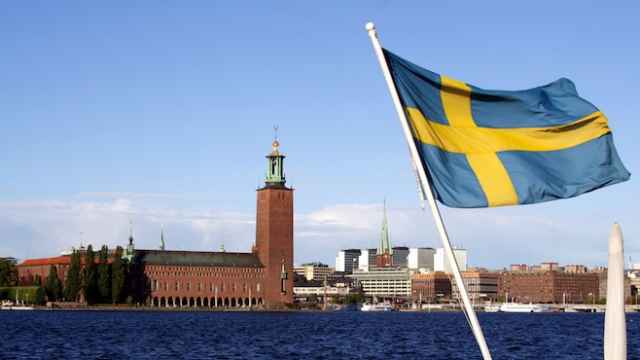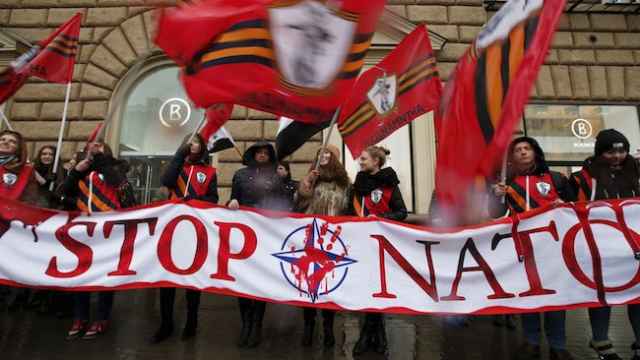Germany's defense minister said on Tuesday that nobody should underestimate NATO's rapid response capacity, which has been ratcheted up in response to worries about Russia's military ambitions after its actions in Ukraine.
Germany's Ursula von der Leyen said in Russia's neighbor Estonia, whose president fears the Baltic state could be overrun in hours, that the Western military alliance has demonstrated its determination to defend its eastern flank in recent months.
"Of course the issue of speed and of an adequate response to potential threats plays a major role and I can only recommend that NATO's reaction capacity should not be underestimated. It is high," she told reporters in Tallinn.
"We have shown the necessary adaptability and this is also a reaction to fast exercises we have seen on the other side of the border," she said, citing plans to boost defenses and build out a new NATO "spearhead" rapid reaction force of 5,000 soldiers.
She was responding to a question about Estonian President Toomas Hendrik Ilves' comments that while it would take NATO up to a week to deploy to the Baltics, "our neighbor" has shown in exercises that its strike speed is "basically instantaneous."
"They're here and it's over in four hours," Ilves told the British newspaper The Telegraph in an interview published over the weekend.
NATO, surprised by the speed of Russia's military intervention in Ukraine's Crimean peninsula last year, has decided to speed up the response time of its rapid reaction forces.
Its "spearhead" force is unlikely to be fully operational until 2016 or 2017 but NATO has been focusing on its existing reaction force, whose troops are supplied this year by Germany, the Netherlands and Norway.
Some of NATO's eastern European allies are disappointed at the U.S.-dominated organization's reluctance to station large numbers of troops on their territory.
A Message from The Moscow Times:
Dear readers,
We are facing unprecedented challenges. Russia's Prosecutor General's Office has designated The Moscow Times as an "undesirable" organization, criminalizing our work and putting our staff at risk of prosecution. This follows our earlier unjust labeling as a "foreign agent."
These actions are direct attempts to silence independent journalism in Russia. The authorities claim our work "discredits the decisions of the Russian leadership." We see things differently: we strive to provide accurate, unbiased reporting on Russia.
We, the journalists of The Moscow Times, refuse to be silenced. But to continue our work, we need your help.
Your support, no matter how small, makes a world of difference. If you can, please support us monthly starting from just $2. It's quick to set up, and every contribution makes a significant impact.
By supporting The Moscow Times, you're defending open, independent journalism in the face of repression. Thank you for standing with us.
Remind me later.






